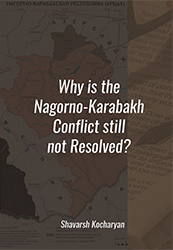Press Statement by the Co-Chairs of the OSCE Minsk Group on the Upcoming Meeting of President Aliyev and Prime Minister Pashinyan
MOSCOW/PARIS/WASHINGTON DC, 09 March 2019 – In their March 1 statement, the Co-Chairs of the OSCE Minsk Group (Igor Popov of the Russian Federation, Stephane Visconti of France and Andrew Schofer of the United States of America) welcomed the commitment of Azerbaijani President Ilham Aliyev and Armenian Prime Minister Nikol Pashinyan to meet soon under the auspices of the Co-Chairs. The Co-Chairs, working closely with the two foreign ministers, have been making preparations for this important leaders’ meeting, which will be the first direct contact between the two leaders conducted under Co-Chair auspices.
read more








